|
Would you like to learn Tres lent in D Minor from L'Organiste by Cesar Franck? I hope you'll enjoy playing this piece yourself from my PDF score. Thanks to Alan Peterson for his meticulous transcription from the slow motion video. What will you get? PDF score with complete fingering written in which will save you many hours of work. Basic Level. 1 page. Let me know how your practice goes. This score is free for Total Organist students. Check it out here
Comments
Vidas: Hi guys, this is Vidas!
Ausra: And Ausra! V: Let’s start episode 451 of Secrets of Organ Playing Podcast. This question was sent by David, and I asked him how his organ practice is going, and he wrote: “Very well! And I played a full service - as substitute organist - last Sunday. And they applauded after the postlude. Miracles really do happen (when you practice)! Played ‘Lobet den Herren mit Pauken und Zimbeln - Alla Händel’ by Karg- Elert (also listed as ‘Festliche Musik Alla Händel’). For the prelude, I played ‘Heut‘ Triumphiert Gottes Sohn’ - using your very helpful fingering! This is the first time I’ve played as a substitute organist at a different church (beyond my own church) for many years. So it really is possible to relearn to play the organ (at age 64)!” V: What do you think, Ausra? A: Well, it’s very nice when people experience something new, and they try different churches, and they see that people appreciate what they are doing. It’s really like a miracle. It shows what the diligent practice can do. V: Exactly. I thought it’s wonderful that people applauded him, that they showed their appreciation! Sometimes, when I play at St. John’s’s church during Mass, when they ask me to substitute for a band or a group of young people performing popular music, I always try to perform solo organ compositions, improvisations as well, so people have this tradition of applauding after the postlude, which is really nice. A: True, it really shows appreciation. V: When he writes, “so it really is possible to relearn to play the organ at age 64,” what do you think the biggest challenges are at this time of life? A: I think probably the biggest challenge is to convince yourself to believe in yourself, that you can do it. I think that’s the main obstacle that you have to overcome. V: Mhm, because if David is practicing at age 64, it doesn’t mean everybody is doing something with their hobbies at age 64. Right? Sometimes, well, it’s almost retirement age! In some countries, it’s already retirement age, and people don’t get much ambition after retirement, which I think could be the opposite. A: Yes, because I think that if you keep going and doing some things that you like, or learn new things, or relearn things, it will help you to stop your aging. V: Yes, at least postpone it. Slow it down. And, I think the key to this feedback of David is that he played it in public. Right? And he had this motivation to learn a few pieces when people could hear him. At he just practice at home, which would be nice, of course, but probably the results wouldn’t be as great, because you really need to push yourself when you are preparing to play in public. Even more than when you are playing for your own enjoyment. Don’t you think, Ausra? A: Yes, I think that the public performance is our final goal for each musician. Not necessarily an organist. V: And of course, to help you motivate yourself during your organ practice, to sit down on the organ bench to practice strategically with a goal in mind, we have created the secrets of organ playing contest, which runs every Monday, and people who participate, of course, only a small number of them—3, 4, sometimes 5 people—but it’s growing! In recent weeks, we’ve seen interest increasing in this contest, because participants started to talk about their real motivation boost of this contest, and when they participate, they really tend to show bigger motivation to practice, and don’t skip any days, and they tell us these things, which is really nice to hear. So, do you think, Ausra, people like David, not necessarily David, but who also who are over 60 years old, for example, would benefit from such a contest? A: Well, yes, I guess, because it would be sort of a live performance, too, because you have to record yourself, and to share with your audience! V: And, perhaps the largest challenge to overcome here is technology. Right? To find a tool to record yourself, and then upload it to YouTube. A: But usually, if you have a smartphone nowadays, it’s not a problem. V: Exactly. I was observing people on the street—everybody has a smartphone of some sort. Not every smartphone has a good microphone, but I think good enough microphone for us to hear what is being performed, it’s quite satisfactory. Right? We’re not talking about CD quality or radio quality here. So, it’s possible. It’s just a matter of saying to yourself, “I can do it.” A: True, I think this is the most important step. V: So, if you guys want to participate in this contest, go ahead and write to me your preferred username on the Steem platform, and I can create an account for you with this username, and delegate a little bit of Steem for 90 days to start your journey on Steem, and then once you keep posting and keep earning Steem, you will be able to continue and to go on your own. Thank you, guys, this was Vidas! A: And Ausra! V: We’re really grateful that you are sending us your questions, so please continue doing that. We love helping you grow. And remember, when you practice, A: Miracles happen! Would you like to learn Offertoire in C Major from L'Organiste by Cesar Franck? I hope you'll enjoy playing this piece yourself from my PDF score. Thanks to Jeremy Owens for his meticulous transcription from the slow motion video. What will you get? PDF score with complete fingering written in which will save you many hours of work. Basic Level. 5 pages. Let me know how your practice goes. This score is free for Total Organist students. Check it out here
Vidas: Hi guys! This is Vidas.
Ausra: And Ausra. V: Let’s start episode 453 of Secrets of Organ Playing Podcast. This question was sent by Abraham, and he writes: Good to hear from you Mr Vidas. Is it possible to follow these steps and master any organ composition a week before performance? I just have to clarify this question probably. Abraham wrote an answer to my email when I sent him the video of How to Master Any Organ Composition. After the first day when subscribers come to our community, they get this video and start learning this 10 day mini-course on learning to play any organ composition. So, he probably watched this video, I suspect, and has this question: Is it possible to follow these steps (that I taught probably in this video), and master any organ composition a week before performance? Do you think, Ausra, he means that his performance might be a week from now, and he has just started playing the piece, or learning the piece now? A: Well, I’m not quite sure. What about you? What do you think? V: It’s not clear to me. But if it is, then obviously, it depends upon the skill of your ability. A: And it depends on the piece, too. V: Yes, how difficult it is. How advanced are you in organ playing? How good are you in sight reading, those things. And improvisation probably too, I suspect. And harmony. It all comes together in the final performance. So, in most cases, I would say no, right Ausra? A: Probably yes. V: In most cases, it’s too little time. A: It’s too risky. V: Yes. Remember we always advise people to… A: To be ready, you know, a month ahead of time. V: Now I’m saying two months ahead. Just to keep people from stress, you know? A: But anyway, I think you still get some stress during actual performance. Even if you will get it, I don’t know, three months ahead. But if you will do everything that’s possible that’s in your power, then at least you be, you know, won’t feel guilty if something went wrong. V: Mm hm. And if your performance is a week from today and you are just starting, then it’s probably something wrong with the planning process of the preparation. I mean, you have to prepare well in advance and plan well in advance. A: Yes. I remember our classmate in the Academy of Music, he took the last piece of Max Reger. I don’t remember now exactly which one it was. V: Sonata, I think. A: I think it was… V: One of the two sonatas. A: Yes, one of the two sonatas. And I think he counted pages, and it was what, like 30 pages long? V: Thirty pages, yeah. A: And he, OH, I have a month before the performance, so I’ll just have to learn one page per day, and I’ll be ready! Guess what – he never learned that piece and never performed it. V: He learned maybe five pages or so. A: I know, I know. And he saw that it’s a hopeless business. V: And now he is no longer playing organ, by the way. A: Yeah, but he is building them, so. V: Mm hm. A: That’s good, too. V: So you know, I would say that, imagine if somebody asks you to play a week from today something, then you have to play pieces that you already know well in advance. Maybe you can repeat from your last performance, right, Ausra? A: True. V: A week from today, it’s possible to refresh something that you learned, let’s say a month ago or two months ago. I think it is possible. A: Yes. V: If you learn it in a systematic way. But what happens if somebody asks you to perform a week from today and you don’t have anything ready? A: Well then, you have either to improvise or… V: To say no. A: Yes, to say no. V: Yeah, improvising sometimes it’s easier than playing from the score, but not... A: Not necessarily. V: Not for every person. A: If you have never done it before, then just, you know… V: Yes. Just next time, gather your repertoire ahead of time and you will be more secure, I think, when the time comes. A: I think it’s important for organists to keep, sort of like a master repertoire, of what has to be on your list, some music that fits wedding, some music that fits funeral, some music that fits service, and probably like, what, 10-15 of the most common hymns? V: Good idea, Ausra. This is what they would require for Service Playing Certificate at AGO. And this is, I think, well thought of situation, and the most common things that organists have to play. A: Sure. And then, you know, do what you have to do to refresh these pieces, to keep them alive, let’s say. V: Once in awhile. A: Yes. V: Maybe this much of repertoire and hymns would probably take half an hour to play, I would say, once. But if you do this just like once a month, after learning them thoroughly and mastering, I think you would be prepared to play on a short notice. A: That’s right. V: Okay guys. Thank you for your wonderful questions. We love helping you grow. This was Vidas… A: And Ausra. V: And remember, when you practice… A: Miracles happen. Would you like to master Christ ist erstanden, BWV 627 by J.S. Bach? I've created this practice score with complete fingering and pedaling so that our students could master this chorale prelude from the Orgelbuchlein efficiently, saving many hours of frustration and achieving ideal articulation - articulate legato. The left hand is written in the alto clef. Thanks to Carlos David Bernales Vilca and Alan Peterson for their meticulous transcription from slow motion video. Basic level. PDF score. 4 pages. This score is free for Total Organist students. Check it out here
Vidas: Hi guys, this is Vidas!
Ausra: And Ausra! V: Let’s start episode 448 of Secrets of Organ Playing Podcast. This question was sent by Christianna, and Christianna writes: “My dream for organ playing is to be able to play, at very least hymns and sightread intermediate organ music. The three inhibitors at the moment I think, would be: 1. Lack of a teacher, 2. Having to drive fifteen minutes to play on an organ and, having to deal with the fact that it's not available on weekends, 3. None of the music stores in my area carry any sort of organ method or scale book. I think that might help at first as I work on figuring out the foot pedals and stops, even though my organ only has four stops for each manual.” V: So, Christianna wants to be reasonably good at intermediate organ music and playing hymns. That’s a very decent goal, I think. A: Yes, for a church organist, it is. V: And I think her problems or challenges can be overcome, right? Lack of teacher. What would you suggest? A: Well, nowadays, there are so many sources on the Internet! V: And, isn’t that the reason why we started our podcast and blog and training courses? A: Sure! I think you can find lots of material in our resources that would help for you to become at least an intermediate organist. V: Yeah, no doubt about that. And, of course, this question that Christianna is answering is sent to her after about two weeks of being here in our community, so she’s kind of new. She needs to explore a little bit more what’s available—what free materials are available, what courses are available—and definitely, she will find something for her. The second, obviously, challenge is with the organ itself. A: But she only has to drive 15 minutes. Do you consider 15 minutes to be a long way to find an organ to practice? I find it a funny distance, 15 minutes. V: 15 minutes? It’s a reasonable distance. If, for example, you are living in a city, then it’s really not that far. It’s like going to a gym, basically, right? A: Well, it takes us longer to go to a gym from the place where we live. V: And it takes longer for us to go to the church from where we live. A: Definitely. So I think nowadays, when people are driving really long distances, for example, to work every day, 15 minutes doesn’t seem a long time. And if you don’t want to waste those 15 minutes, you may listen to some useful stuff while you’re driving. V: For example…. A: Well, you can learn learn languages. V: Or listen to Maltese music. A: Well…...yes…. V: I need to tell the background of this joke for people to understand. When I went to Malta to play there for 200 tourists from Paris, “Le Figaro” newspaper, I saw one person playing a mandolin in 60 languages, and I asked for him to play something and sing something Lithuanian, and he did one of our most well-known songs, and obviously, I bought a CD from him with his music, Maltese music, where he played mandolin. So that’s the origin of this joke. Obviously, you could listen to books on tape, or podcasts, or as Ausra says, organ music… A: But anyway, 15 minutes of drive is not a long distance. I wouldn’t consider it a problem. V: A little bit of a problem would be if she cannot practice on that organ on weekends. Right? The organ is not available, she says. So on those weekends, maybe practicing at home on the table would help, if she doesn’t have any other instruments, like a keyboard. What else? A: True! That might help. V: Definitely. A: Because, I think if you have a goal, and if it’s important for you to reach the goal, you will always find possibilities to do it, and if you don’t maybe that goal wasn’t so important for you. V: And if it’s important to you, maybe with time, start saving some money, investing some money for a keyboard to have at home. A: True! V: Number 3 would be, “None of the music stores in my area carry any sort of organ method,” which is also related to the first question, lack of teacher. A: True, but today, if she can use the Internet, it means that she can order things online. V: Obviously, yes. A: And there are so many things you can get on the Internet. V: And, if she just looked around, we have so many courses, and practice courses for fingering and pedaling, it’s a good starting point, I think. A: I guess nowadays, it’s not so hard to find the information that you need, material that you need, as I think it’s hard to decide which one to buy! V: Oh, it’s called, “information overload.” A: That’s what I think is more common nowadays. V: When you have 50 sources to compare, and you don’t know which one is better, then you basically are stuck, and freeze in your mind. I think the best way to start is wherever you are—whatever is in front of you. It might not be the best method, or the most comprehensive method that you wish for, but it’s a good starting point, and it will lead you someplace, and after you reach that intermediate goal, you can go to the next level. A: Sure. Do you think the Hymn Playing Workshop would be helpful for her, from our teaching materials? V: Yes, we have those hymn playing workshop videos and hymn scores in that, so yes, it will give her a foundation on how to master those hymns, and after those videos, she will have the knowledge to apply it to any other hymn, which is good. A: And because it has videos, it sort of replaces the real teacher. V: Yes! The real teacher would also be, maybe, more strict with her, giving external motivation, because she would be maybe embarrassed to show up unprepared. With videos in our courses, there is a different motivation, which is basically inner motivation. That’s what we value the most. Right Ausra? A: True, and I think that inner motivation is the most important, because look; even if you go go to college or to university or academy of music, or a conservatory to study music, your studies won’t last forever. Eventually, you will graduate from the institution and you will be left on your own! So if you won’t have that inner motivation, then what can you do? You will start practicing! V: And we’re seeing people quitting playing after a while, because they lack motivation. So, I think it’s good to find some sort of external motivation in the form of public performance opportunities, maybe in the same church that she would practice, she could give public performances during services, maybe—preludes, postludes, communions, offertories—or if she is really good, later on she could prepare a post service appearance. A: And Christianna also says that her organ where she practices is probably not a large one. It has two manual, each having four stops. I think it’s a reasonable size organ for practicing. It’s more than enough, I think, to become an intermediate organist. V: We have two stops at our home organ. Yes. A: True. V: That’s enough, I think. Whatever more that you need, you can pretend you have. If you need a swell box, you can pretend you’re using it with your right foot. If you need toe pistons and studs, you can pretend you are pushing them. Right? Thank you guys for those wonderful questions. Keep sending them! We love helping you grow. And remember, when you practice, A: Miracles happen! Have you ever wanted to start to practice on the organ but found yourself sidetracked after a few days? Apparently your inner motivation wasn't enough.
I know how you feel. I also was stuck many times. What helped me was to find some external motivation as well. In order for you to advance your organ playing skills and help you motivate to practice, my wife Ausra - @laputis and I invite you to join in a contest to submit your organ music and win some Steem. Are you an experienced organist? You can participate easily. Are you a beginner? No problem. This contest is open to every organ music loving Steemian. Here are the rules Thank you everyone for participating! You all made us very happy with your entries. We thank @partitura who selected the following winners:
https://steemit.com/secretsoforganplaying/@organduo/winners-of-secrets-of-organ-playing-contest-week-25 Would you like to learn Lento in C# Minor from L'Organiste by Cesar Franck? I hope you'll enjoy playing this piece yourself from my PDF score. Thanks to Jan Pennell for her meticulous transcription from the slow motion video. What will you get? PDF score. Basic Level. 1.5 pages. Let me know how your practice goes. This score is free for Total Organist students. Check it out here
Vidas: Hi, guys, this is Vidas.
Ausra: And Ausra. V: Let’s start episode 452, of Secrets of Organ Playing Podcast. This question was sent by May, and she writes: Hi Vidas, What are the prerequisites to Organ Hymn Improvisation Master Course Level 1? For example, what kind of chords do I need to know in order to study this course well? What level of music theory should I have before starting this course? Also, what are the expected outcome of this course? Thanks, May V: Maybe you could ask me some questions about this and I could explain it a little bit further, right? A: Don’t you think May asked enough questions in one question? V: Yes. A: Maybe you need to start in a row and answer them. V: I will start from the beginning but if you need some clarification, just tell me. A: Okay, sure. V: Okay. Prerequisites to Organ Hymn Improvisation Master Course Level 1, is very simple; you need to know only intervals. A: No chords then? V: No chords because it’s a course for two voices. A: I see. V: And each hand plays counterpoint. One hand plays a melody, hymn melody and another hand plays counterpoint to it, and then they switch. Therefore no chords are built in this course. So prerequisites are really simple—you just need to be able to play two notes together on the keyboard without pedal. Alright? We talked about chords—no chords are needed, and what level of music theory? About intervals I could talk about a little bit, right? What kind of intervals? Well of all the intervals until an octave, up to an octave, perfect octave. So, a unison which is an interval of repeated notes, like C and C. This is a unison. It’s called perfect unison because it has no vibrations. Then major and minor seconds, then major and minor thirds, perfect fourth, a tritone which is, could be augmented fourth or diminished fifth, perfect fifth, minor six, major six, minor seventh and major seventh, and then the last one would be perfect octave. Does it mean that you should use all those intervals? How do you think, Ausra? A: Well I don’t think so, because there are good intervals and bad intervals. V: Yes. But you have to know all of them… A: Sure. V: in order to avoid bad intervals. A: Sure. V: And so we primarily sweet sounding intervals which are major and minor thirds and sixths, but then occasionally use octaves and fifths. But then there are some rules to avoid parallel octaves and fifths. A: What about fourth? V: Fourth is allowed. Fourth is okay. A: What about second? V: Second is a dissonance, therefore it’s a, not sweet sounding interval, and therefore we don’t use it in this style. A: Okay. V: Mmm-hmm. A: And I guess then you don’t use seventh as well, yes? V: Seventh is an inversion of the second, so yes—no seventh. Would you like to know, Ausra, what are [is] the expected outcome of this course? A: Well yes. I think it would be good know before starting the course. V: I think you could also guess what people could do after practicing. A: Well after practicing these counterpoint intervals, you could start practicing chords too. V: Three voices. A: Three voices, yes. That would be then next step, to add another voice. V: Mmm-hmm. At first we do note against note—counterpoint for two voices, then two notes against one, then three notes against one, then four notes against one—those kinds of things. So therefore the next level could be also note against note for three voices and then note against, two voices against one, for three voices. Gradually complicating, making the texture more complex so to say. A: Do you think it’s important to start from this level one if you are just a beginner? Or you could skip it and start with harder courses? What would be your suggestion? V: Your goals. Depends on your goals, right? If you are trying to learn improvisation on the hymn tune and you want to [do] a methodical method, a systematic method, then yes, probably starting from two voices, note against note is very beneficial. And sometimes even too hard for really, people who just started playing organ today. Maybe they can play only with one voice. Then okay, play just the hymn tunes, for right hand and left hand alone. And then, after that you will be ready to supply the second voice. A: Excellent! V: Right! So we hope with Ausra, that May can benefit from this course as well, and others who are interested in learning hymn related improvisation, which could lead to further discoveries and complications, like fuguettes, and also chorale preludes, and also chorale fantasias later on. A: Excellent. V: And once you learn this course you will be able to learn and play maybe ten or more variations on the same hymn tune because of the progressing complications of the variations. A: It’s very beneficial, especially if you have long service. V: Yeah. You could play… A: If you have to prolong your playing time. V: You could add interest with registration of course, but it could be an excellent piece for communion, for example. A: Sure. V: Or a prelude. Good. Thank you guys for sending these questions. We love helping you grow. And remember, when you practice… V: Miracles happen! |
DON'T MISS A THING! FREE UPDATES BY EMAIL.Thank you!You have successfully joined our subscriber list.  Photo by Edgaras Kurauskas Photo by Edgaras Kurauskas
Authors
Drs. Vidas Pinkevicius and Ausra Motuzaite-Pinkeviciene Organists of Vilnius University , creators of Secrets of Organ Playing. Our Hauptwerk Setup:
Categories
All
Archives
July 2024
|
This site participates in the Amazon, Thomann and other affiliate programs, the proceeds of which keep it free for anyone to read.
Copyright © 2011-2024 by Vidas Pinkevicius and Ausra Motuzaite-Pinkeviciene.
Terms of Service and Privacy Policy
Copyright © 2011-2024 by Vidas Pinkevicius and Ausra Motuzaite-Pinkeviciene.
Terms of Service and Privacy Policy

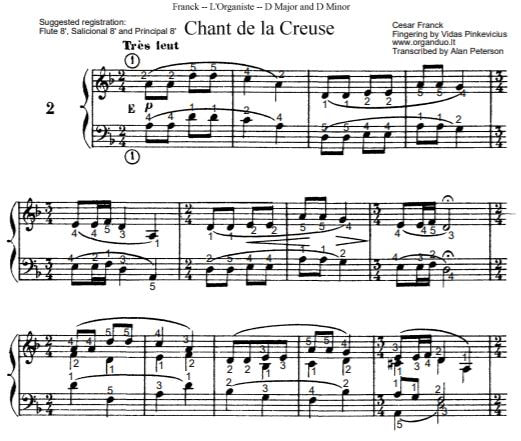
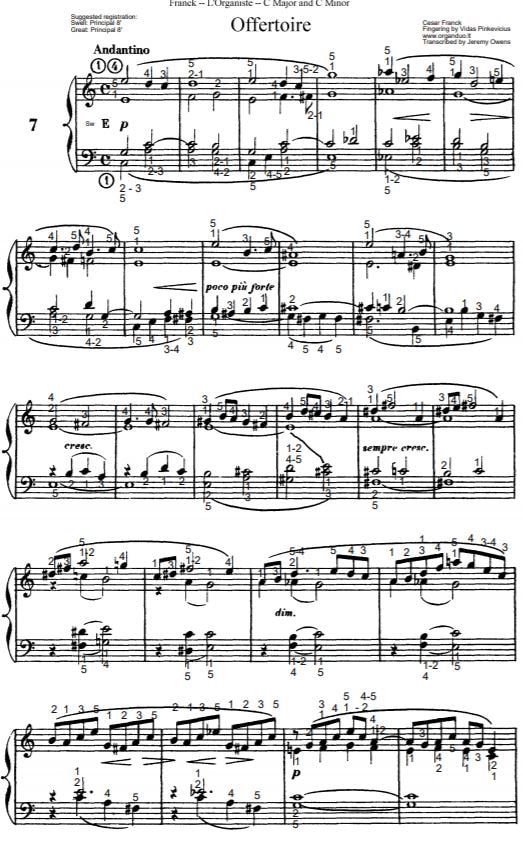
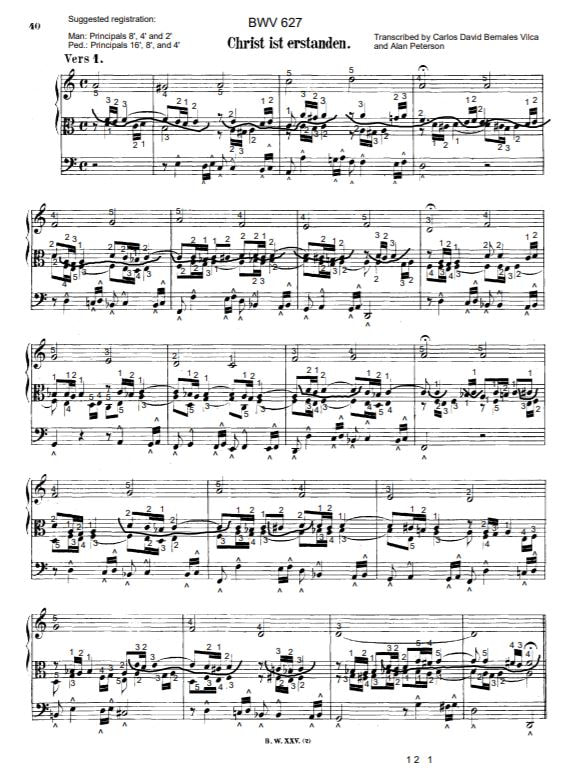

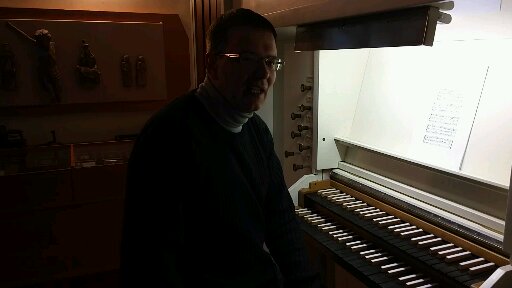
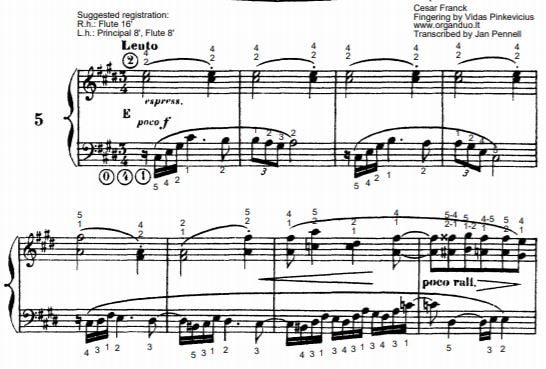



 RSS Feed
RSS Feed